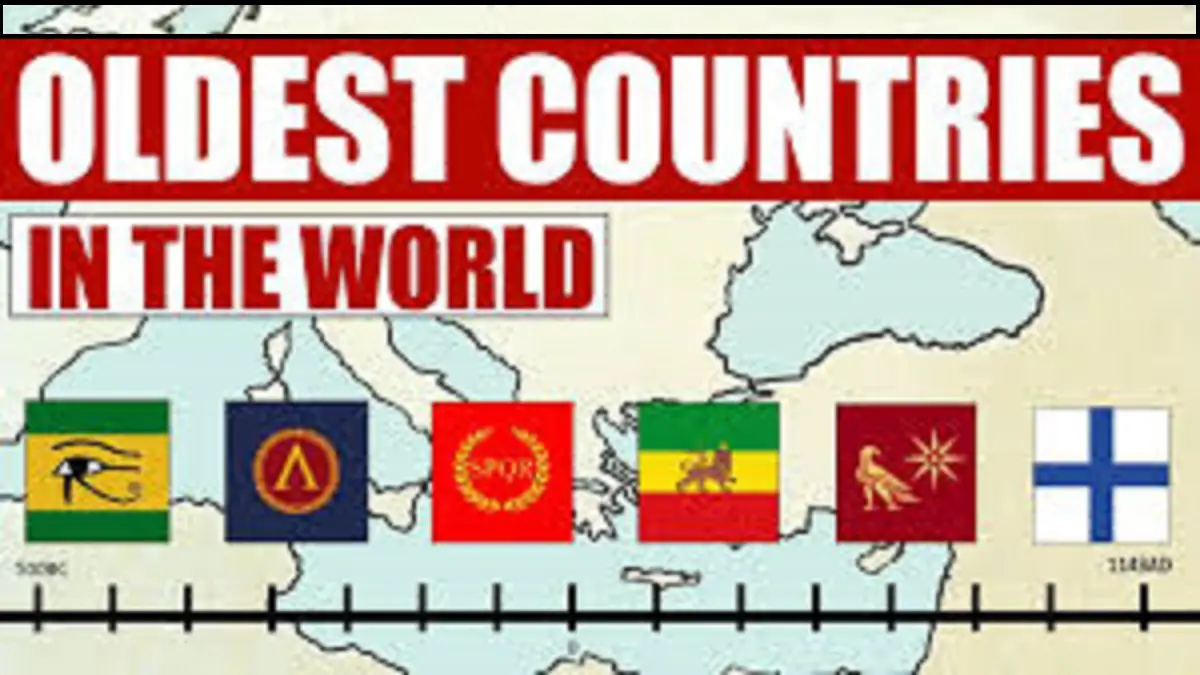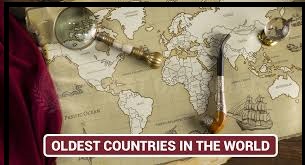CURRENT NEWS
THE OLDEST COUNTRIES OF THE WORLD

Here’s a look at some of the oldest countries in the world, each with a rich history and cultural heritage that spans thousands of years:
- Iran: 3200 BCE
- Egypt: 3100 BCE
- Vietnam: 2879 BCE
- Armenia: 2492 BCE
- North Korea: 2333 BCE
- China: 2070 BCE
- India: 2000 BCE
- Georgia: 1300 BCE
- Israel: 1300 BCE
- Sudan: 1070 BCE
- Afghanistan: 678 BCE
1. Iran (Persia)
- Founded: Approximately 3200 BCE
- Overview: Ancient Persia was one of the world’s first great empires, known for its rich culture, advanced governance, and contributions to art and science.
2. Egypt
- Founded: Approximately 3100 BCE
- Overview: Known for its ancient civilization, Egypt boasts iconic monuments such as the Pyramids of Giza and the Sphinx. The Nile River played a crucial role in its agriculture and culture.
3. China
- Founded: Approximately 2070 BCE (Xia Dynasty)
- Overview: With a history spanning over 4,000 years, China has made significant contributions to philosophy, technology, and culture, influencing much of East Asia.
4. Greece
- Founded: Approximately 3000 BCE
- Overview: Known as the cradle of Western civilization, ancient Greece contributed to art, philosophy, and democracy. City-states like Athens and Sparta were central to its history.
5. India
- Founded: Approximately 2500 BCE (Indus Valley Civilization)
- Overview: Home to one of the world’s oldest urban cultures, India has a rich tapestry of religions, languages, and philosophies, influencing cultures worldwide.
6. Iraq (Mesopotamia)
- Founded: Approximately 3500 BCE
- Overview: Often referred to as the “cradle of civilization,” ancient Mesopotamia saw the rise of city-states like Sumer and Babylon, pioneering developments in writing, law, and urban planning.
7. Italy
- Founded: Approximately 753 BCE (Rome)
- Overview: The Roman Empire laid the foundations for modern governance, law, and architecture. Italy’s rich history continues to influence Western culture.
8. Japan
- Founded: Approximately 660 BCE (mythical founding)
- Overview: Japan has a unique blend of indigenous and external influences, with a rich cultural heritage reflected in its art, literature, and traditions.
9. Ethiopia
- Founded: Approximately 980 BCE
- Overview: Known for its ancient kingdoms, including Axum, Ethiopia has a distinct cultural and religious history, being one of the first countries to adopt Christianity.
10. San Marino
- Founded: 301 CE
- Overview: Claiming to be the world’s oldest republic, San Marino has maintained its independence and traditions for centuries, boasting a rich medieval history.

How do you determine the oldest countries in the world?
Determining the oldest countries in the world is a complex task, as the concept of a “country” involves factors like historical governance, cultural continuity, and territorial boundaries, all of which have evolved over time. Here’s a breakdown of how we can approach this topic:
Criteria for Determining Age
- Documented History:
- Countries with a long, recorded history of organized governance or civilization are prioritized. This includes evidence of early states, city-states, or empires.
- Cultural Continuity:
- Nations that have maintained a consistent cultural identity, language, or tradition over thousands of years are significant. For example, Egypt has a continuous cultural lineage dating back to ancient times.
- Geographical Boundaries:
- The modern boundaries of countries are considered, but the historical regions and civilizations that correspond to these boundaries play a crucial role. This includes examining ancient territories that align with contemporary nations.
- Political Structure:
- The establishment of a formal government or political structure is a key factor. Nations that formed early states or empires, such as Mesopotamia or ancient Egypt, are considered.
- Scholarly Consensus:
- While there may be differing opinions among historians, looking for a general consensus can help identify strong contenders for the title of “oldest country.”
Challenges in Determination
- Changing Borders:
- National borders have frequently changed due to wars, colonization, and treaties, complicating the idea of “age.” For example, while the territory of modern-day Italy has a rich history dating back to ancient Rome, the country itself was unified only in the 19th century.
- Diverse Definitions:
- Different historians may define what constitutes a “country” or “nation” differently, leading to varying conclusions about which is the oldest.
- Mythical Foundations:
- Some nations, like Japan, have founding myths that date back centuries, complicating the distinction between historical fact and legend.
Follow Us


